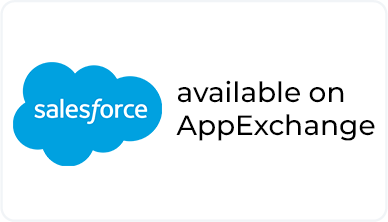
The Power of Integrating with Salesforce WhatsApp for Boosting Sales and Customer Engagement
Unlocking the full potential of your business requires seamless integration between your customer relationship management (CRM) system and communication channels. And when it comes to boosting sales and customer engagement, combining the power of Salesforce WhatsApp can be a game-changer. In this article, we explore the benefits of integrating these two formidable platforms and how it can revolutionize your business.
With over 2 billion active monthly users, WhatsApp has become a dominant force in the messaging landscape. By integrating it with Salesforce, you can leverage its popularity and engage with your customers directly on a platform they are already familiar with. From sending personalized messages and product updates to providing real-time customer support, the possibilities are endless.
Furthermore, the integration between Salesforce and WhatsApp allows for seamless data synchronization, ensuring that all customer interactions are recorded in your CRM system. This empowers your sales team with a complete view of customer engagement, enabling them to provide targeted and personalized experiences.
In conclusion, the combination of Salesforce and WhatsApp provides a powerful toolset for boosting sales and enhancing customer engagement. By integrating these two platforms, businesses can streamline their processes, increase efficiency, and ultimately drive revenue growth.
Furthermore, Salesforce WhatsApp integration empowers organizations to leverage the rich features of both platforms to drive sales conversions and nurture customer relationships. Through automated workflows, targeted messaging, and data-driven analytics, businesses can create tailored communication strategies that resonate with their audience and drive meaningful outcomes. By harnessing the immediacy and convenience of WhatsApp messaging within the context of Salesforce's comprehensive CRM ecosystem, companies can create a cohesive and efficient communication framework that enhances customer satisfaction and loyalty. The result is a more agile, customer-centric approach to sales and service delivery that sets businesses apart in a competitive marketplace.
In addition to operational efficiencies, Salesforce WhatsApp integration opens up new avenues for customer engagement and brand visibility. With WhatsApp's massive user base and high engagement rates, businesses can tap into a vast audience and connect with customers in a personalized, non-intrusive manner. Whether sending order updates, collecting feedback, or providing proactive support, companies can build stronger relationships with customers and drive brand advocacy through targeted messaging on WhatsApp. This direct, conversational approach fosters trust and loyalty, ultimately leading to increased customer lifetime value and business growth.
Integrating Salesforce with WhatsApp using WatBox an significantly enhance your customer communication and support capabilities.
How Integration with Salesforce WhatsApp Can Boost Sales
Integration with Salesforce WhatsApp has the potential to revolutionize the way businesses interact with their customers and drive sales. By combining the robust CRM capabilities of Salesforce with the instant messaging features of WhatsApp, businesses can create a seamless and efficient sales process that caters to the evolving needs of customers. One of the key ways in which this integration can boost sales is through improved lead nurturing. With WhatsApp being a direct and personalized communication channel, businesses can engage with leads in a more meaningful way, guiding them through the sales funnel with targeted messages and content.
This personalized approach can significantly increase conversion rates and shorten the sales cycle. Additionally, Salesforce and WhatsApp integration can empower sales teams with valuable insights and analytics. By capturing all customer interactions within the CRM system, businesses can gain a deeper understanding of customer preferences, behaviors, and pain points. This data-driven approach allows sales teams to create more effective sales strategies, prioritize leads based on engagement levels, and tailor their pitches to resonate with each individual customer.
Furthermore, the integration between Salesforce and WhatsApp enables businesses to provide real-time support and assistance to customers. Whether it's answering product queries, resolving issues, or providing personalized recommendations, businesses can leverage the immediacy of WhatsApp to deliver exceptional customer service. This proactive approach not only enhances the overall customer experience but also fosters loyalty and repeat business. In essence, Integration with Salesforce WhatsApp can boost sales by optimizing lead nurturing, empowering sales teams with data-driven insights, and delivering exceptional customer service.
Improving Customer Engagement Through Integration with Salesforce WhatsApp - WatBox
Customer engagement is a crucial aspect of any successful business, as it directly impacts brand loyalty, customer retention, and ultimately, sales performance. By integrating Salesforce and WhatsApp, businesses can take their customer engagement strategies to the next level, creating meaningful interactions that resonate with customers and drive loyalty. One of the primary ways in which this integration improves customer engagement is through personalized communication. With WhatsApp's ability to send targeted messages and updates, businesses can tailor their communication to each customer's preferences and behaviors, creating a more engaging and relevant experience.
This personalized approach not only strengthens the relationship between businesses and customers but also increases the likelihood of conversion and repeat business. Additionally, Salesforce and WhatsApp integration enables businesses to provide proactive and timely customer support. By leveraging WhatsApp's real-time messaging capabilities, businesses can address customer queries, resolve issues, and provide assistance in a quick and efficient manner. This instant support not only enhances the overall customer experience but also builds trust and loyalty with customers.
Moreover, the integration between Salesforce and WhatsApp facilitates omni-channel engagement, allowing businesses to reach customers on their preferred platforms. Whether it's through WhatsApp, email, social media, or phone calls, businesses can create a seamless and consistent experience for customers across all touchpoints. This multi-channel approach ensures that customers can engage with businesses in the most convenient and comfortable way, leading to higher satisfaction levels and increased engagement. In essence, by integrating Salesforce and WhatsApp, businesses can improve customer engagement through personalized communication, timely support, and omni-channel interactions.
Case Studies of Successful Salesforce and WhatsApp Integrations - WatBox
Implementing Integration with Salesforce WhatsApp has proven to be a game-changer for many businesses across various industries. Let's delve into some compelling case studies that highlight the success and benefits of integrating these two formidable platforms. One notable example is a global e-commerce company that leveraged Integration with Salesforce WhatsApp to enhance their customer service capabilities. By enabling customers to reach out via WhatsApp for queries, support, and feedback, the company saw a significant increase in customer satisfaction levels and a decrease in response times.
This seamless communication channel not only improved the overall customer experience but also led to a boost in sales and repeat business. Another case study involves a technology startup that utilized Integration with Salesforce WhatsApp to streamline their lead generation and follow-up processes. By automating lead scoring, nurturing, and follow-ups through WhatsApp messages, the startup was able to increase their sales pipeline efficiency and conversion rates. This automation not only saved time for the sales team but also improved the quality of leads and engagements.
Furthermore, a healthcare provider successfully integrated Salesforce and WhatsApp to provide personalized health tips, appointment reminders, and patient support through WhatsApp messages. This proactive approach not only improved patient engagement and satisfaction but also optimized clinic operations and reduced no-show rates. These case studies demonstrate the diverse ways in which businesses can leverage Salesforce and WhatsApp integration to drive sales, enhance customer engagement, and improve overall business performance. By adopting a strategic and tailored approach to integration, businesses can unlock the full potential of these platforms and achieve remarkable results.
Step-By-Step Guide to Integrating Salesforce and WhatsApp
Integrating Salesforce and WhatsApp can seem like a daunting task, but with the right approach and guidance, businesses can successfully implement this powerful integration to drive sales and improve customer engagement. Here is a step-by-step guide to help businesses seamlessly integrate Salesforce and WhatsApp :
- Define Integration Goals: Start by clearly defining your integration goals and objectives. Determine what specific outcomes you want to achieve by integrating Salesforce and WhatsApp, whether it's improving lead generation, enhancing customer communication, or streamlining sales processes.
- Install WatBox: https://watbox.ai/
- Train Your Team: Provide comprehensive training to your sales and customer service teams on how to effectively use Integration with Salesforce WhatsApp. Ensure they understand the benefits of the integration and how it can enhance their daily workflows and tasks.
- Test and Validate Integration: Conduct thorough testing and validation of the integration before fully deploying it. Test various scenarios, data flows, and communication channels to ensure seamless connectivity and data synchronization between Salesforce and WhatsApp.
- Monitor Performance and Analytics: Continuously monitor the performance of the integration and track key metrics and analytics. Measure the impact of integrating Salesforce and WhatsApp on sales performance, customer engagement, and overall business success.
By following this step-by-step guide, businesses can successfully integrate Salesforce and WhatsApp to optimize their sales processes, improve customer engagement, and drive business growth. With careful planning, customization, and training, businesses can harness the full power of these platforms and unlock new opportunities for success.
Best Practices for Salesforce and WhatsApp Integration
Integrating Salesforce and WhatsApp can be a transformative process for businesses, but it's essential to follow best practices to ensure a successful and seamless integration. Here are some key best practices to consider when integrating Salesforce and WhatsApp:
- Understand Your Business Needs: Before embarking on the integration process, clearly define your business needs, goals, and objectives. Identify the specific areas where integrating Salesforce and WhatsApp can add value and drive results for your business.
- Choose the Right Integration Solution: Select a reliable and reputable integration solution that aligns with your business requirements. Consider factors such as scalability, customization options, and compatibility with Salesforce and WhatsApp platforms.
- Focus on Data Security and Compliance: Prioritize data security and compliance when integrating Salesforce and WhatsApp. Ensure that sensitive customer information is protected and that the integration meets regulatory requirements and industry standards.
- Ensure Seamless Communication: Streamline communication channels between Salesforce and WhatsApp to ensure smooth data synchronization and real-time updates. Implement automation rules and workflows to facilitate seamless communication and minimize manual interventions.
- Provide Training and Support: Offer comprehensive training and ongoing support to your teams to ensure they fully understand how to leverage the integrated Salesforce and WhatsApp platforms. Empower them to utilize the features and functionalities effectively to drive sales and customer engagement.
- Monitor Performance and Optimization: Continuously monitor the performance of the integration and gather feedback from users. Analyze key metrics, identify areas for improvement, and optimize the integration to enhance efficiency and effectiveness.
By adhering to these best practices, businesses can maximize the benefits of integrating Salesforce and WhatsApp, streamline their processes, and elevate their sales and customer engagement strategies to new heights.
Common Challenges and How to Overcome Them in Integration with Salesforce WhatsApp
While integrating Salesforce and WhatsApp can offer numerous benefits, businesses may encounter challenges along the way that can impede the integration process. It's essential to be aware of these common challenges and implement strategies to overcome them effectively. Here are some common challenges and ways to address them in Salesforce and WhatsApp integration :
- Data Synchronization Issues: One of the primary challenges in integrating Salesforce and WhatsApp is ensuring seamless data synchronization between the two platforms. To overcome this challenge, businesses can implement data validation rules, regular data audits, and automated data syncing processes to maintain data accuracy and consistency.
- Integration Complexity: Integrating Salesforce and WhatsApp can be complex, especially for businesses with diverse systems and workflows. To address this challenge, businesses can work with experienced integration experts, leverage pre-built integration tools, and break down the integration process into manageable phases to simplify complexity.
- User Adoption and Training: Getting buy-in from users and ensuring proper training on how to use the integrated Salesforce and WhatsApp platforms can be a challenge. To overcome this, businesses should invest in comprehensive training programs, provide ongoing support, and highlight the benefits of the integration to encourage user adoption.
- Security and Compliance Concerns: Data security and compliance are critical considerations in Integration with Salesforce WhatsApp. To address security and compliance challenges, businesses should implement encryption protocols, access controls, and regular security audits to protect sensitive information and ensure regulatory compliance.
- Performance and Scalability: As businesses grow, the performance and scalability of the integrated Salesforce and WhatsApp platforms may become a challenge. To overcome this, businesses can regularly monitor system performance, optimize workflows, and invest in scalable integration solutions that can accommodate future growth.
- Monitor Performance and Optimization: Continuously monitor the performance of the integration and gather feedback from users. Analyze key metrics, identify areas for improvement, and optimize the integration to enhance efficiency and effectiveness.
By proactively identifying and addressing these common challenges in Integration with Salesforce WhatsApp, businesses can navigate the integration process more effectively, minimize disruptions, and maximize the benefits of integrating these powerful platforms.
Future Trends in Salesforce and WhatsApp Integration
The integration landscape between Salesforce and WhatsApp is constantly evolving, driven by technological advancements, changing customer preferences, and market trends. As businesses seek to stay ahead of the curve and leverage the full potential of these platforms, it's essential to look towards future trends in Integration with Salesforce WhatsApp. Here are some key trends to watch out for in the integration space :
- AI-Powered Automation: The integration of artificial intelligence (AI) and machine learning capabilities into Integration with Salesforce WhatsApp is set to revolutionize how businesses engage with customers. AI-powered automation can streamline processes, personalize interactions, and improve overall efficiency in sales and customer service.
- Chatbot Integration: Chatbots are becoming increasingly popular in customer service and sales interactions. Integrating chatbot functionalities into Salesforce and WhatsApp can enhance customer engagement, provide instant support, and automate routine tasks, leading to improved efficiency and satisfaction.
- Voice Integration: With the rise of voice assistants and voice-activated technology, integrating voice capabilities into Salesforce and WhatsApp can offer new opportunities for customer engagement. Voice integration can enable hands-free communication, personalized interactions, and seamless experiences for customers.
- Data Analytics and Insights: Harnessing the power of data analytics and insights within Integration with Salesforce WhatsApp can provide businesses with valuable information on customer behaviors, preferences, and trends. By leveraging data-driven insights, businesses can make informed decisions, optimize strategies, and drive growth.
- Cross-Platform Integration: As customers engage with businesses across multiple platforms and devices, cross-platform integration between Salesforce and WhatsApp is becoming increasingly important. Seamless connectivity and consistent experiences across all touchpoints can enhance customer engagement and loyalty.
By staying attuned to these future trends in Integration with Salesforce WhatsApp, businesses can adapt their strategies, leverage new technologies, and stay ahead of the competition. Embracing these trends can help businesses unlock new opportunities, drive innovation, and deliver exceptional experiences to customers.
Conclusion: Harnessing the Power of Salesforce and WhatsApp for Business Success
By following best practices, overcoming common challenges, and adapting to future trends, businesses can harness the full power of Integration with Salesforce WhatsApp to optimize their sales processes, enhance customer engagement, and achieve remarkable results. With a strategic and tailored approach to integration, businesses can unlock new possibilities, drive growth, and stay ahead in today's competitive business landscape. Embrace the power of Integration with Salesforce WhatsApp, and propel your business towards greater success and prosperity.
This comprehensive guide has explored the benefits, strategies, case studies, and best practices of integrating Salesforce and WhatsApp for boosting sales and customer engagement. By following the step-by-step guide, businesses can navigate the integration process successfully and unlock the full potential of these powerful platforms. Stay informed on future trends and continue to innovate to drive business success through Integration with Salesforce WhatsApp.
Level up WhatsApp Integration with Salesforce
Start with a 30 day trial for you to taste the CRM + WhatsApp interactions!



